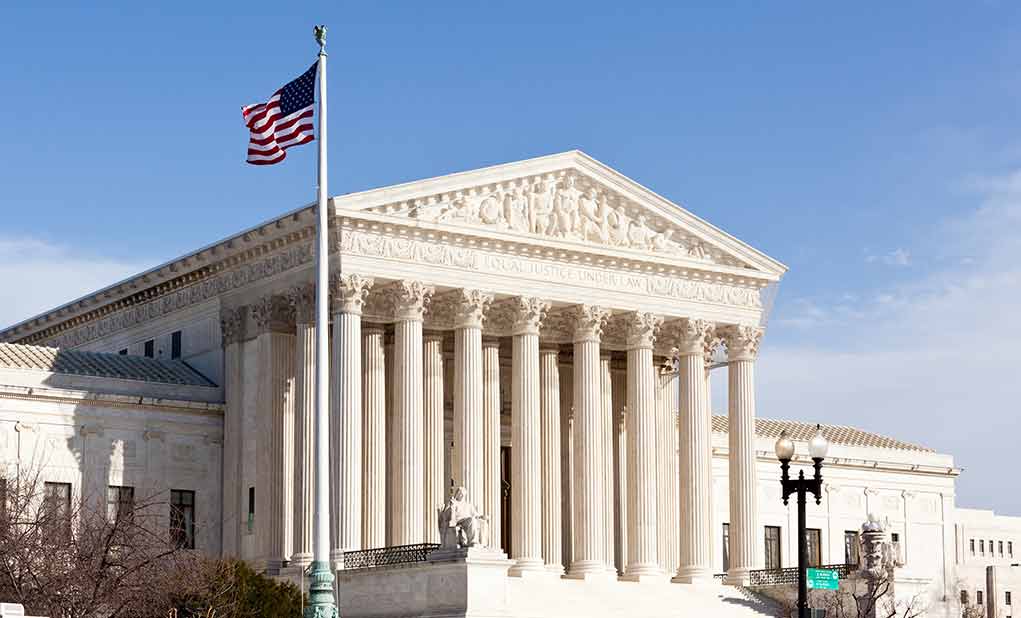The Supreme Court’s landmark 5-4 ruling in Riley v. Bondi delivers a decisive victory for American immigration enforcement by clarifying appeal deadlines for illegal aliens facing deportation. This decision establishes that foreign nationals have just 30 days to appeal removal orders, effectively closing a loophole that allowed illicit immigrants like Jamaican drug trafficker Pierre Riley to manipulate the system and delay their rightful deportation from American soil.
Supreme Court Enforces Strict Timeline for Deportation Appeals
The Supreme Court’s recent ruling involves Pierre Riley, a Jamaican national who overstayed his visa and was convicted of participating in a massive drug trafficking operation. Justice Samuel Alito highlighted Riley’s criminal background in the Court’s opinion, noting: “He became a member of ‘a far-reaching and well-organized’ drug trafficking gang and was convicted in 2008 for conspiracy to distribute and to possess with intent to distribute more than 1,000 kilograms of marijuana, as well as for possession of a firearm in furtherance of a drug-trafficking crime.”
Supreme Court allows Trump's third-country deportations, in major test for president | Breanne Deppisch, Shannon Bream & Bill Mears, Fox News
The Supreme Court has been asked to preside over a flurry of lower court challenges centered on Trump’s immigration crackdown.
The… pic.twitter.com/fJQt18bBdy
— Owen Gregorian (@OwenGregorian) June 24, 2025
The 5-4 decision establishes that illegal aliens must file appeals within 30 days of the initial removal order, not after subsequent decisions by the Board of Immigration Appeals. The Court clearly stated in its opinion: “The 30-day filing deadline cannot be satisfied by filing a petition for review within 30 days of the BIA’s withholding-only order,” eliminating a previously exploited loophole that allowed illegal aliens to extend their stay in America through bureaucratic maneuvering.
Trump Administration Gains Authority for Expedited Deportations
In a separate but related decision, the Supreme Court delivered another enforcement victory by allowing the Trump administration to resume quick deportations of certain immigrants to countries other than their own. The Court’s conservative majority overturned a lower court’s block on the practice, which will remain in effect while the administration’s appeal continues through the legal system.
Excellent thread on recent Texas Alien Enemies Act case: https://t.co/FvrRVlia2d
— Dr. Bob Onder (@BobOnderMO) April 23, 2025
This ruling empowers immigration authorities to deport illegal aliens to “third countries” when necessary, providing additional flexibility in enforcement operations. Liberal justices dissented from the order, with Justice Sonia Sotomayor claiming: “Rather than allowing our lower court colleagues to manage this high-stakes litigation with the care and attention it plainly requires, this Court now intervenes to grant the Government emergency relief from an order it has repeatedly defied.”
Streamlining the Deportation Process Strengthens Border Security
The Riley v. Bondi decision will be sent back to lower courts for further consideration “consistent with this opinion,” as directed by the Supreme Court. This ruling establishes clear guidelines that prevent illegal aliens from exploiting procedural complexities to delay deportation, potentially expediting the removal of thousands of individuals who have violated immigration laws.
“In matters of life and death, it is best to proceed with caution.”
The Supreme Court’s decisions reflect a commitment to enforcing existing immigration laws and closing loopholes that have hindered adequate border security. By clarifying appeal deadlines and expanding deportation options, these rulings provide immigration authorities with stronger tools to address the ongoing crisis at America’s borders and remove individuals who threaten public safety, like drug trafficker Pierre Riley, more efficiently from American communities.
Sources:
https://www.cnbc.com/2025/06/23/trump-deportation-supreme-court.html
https://www.dailywire.com/news/scotus-decision-could-streamline-deportations

